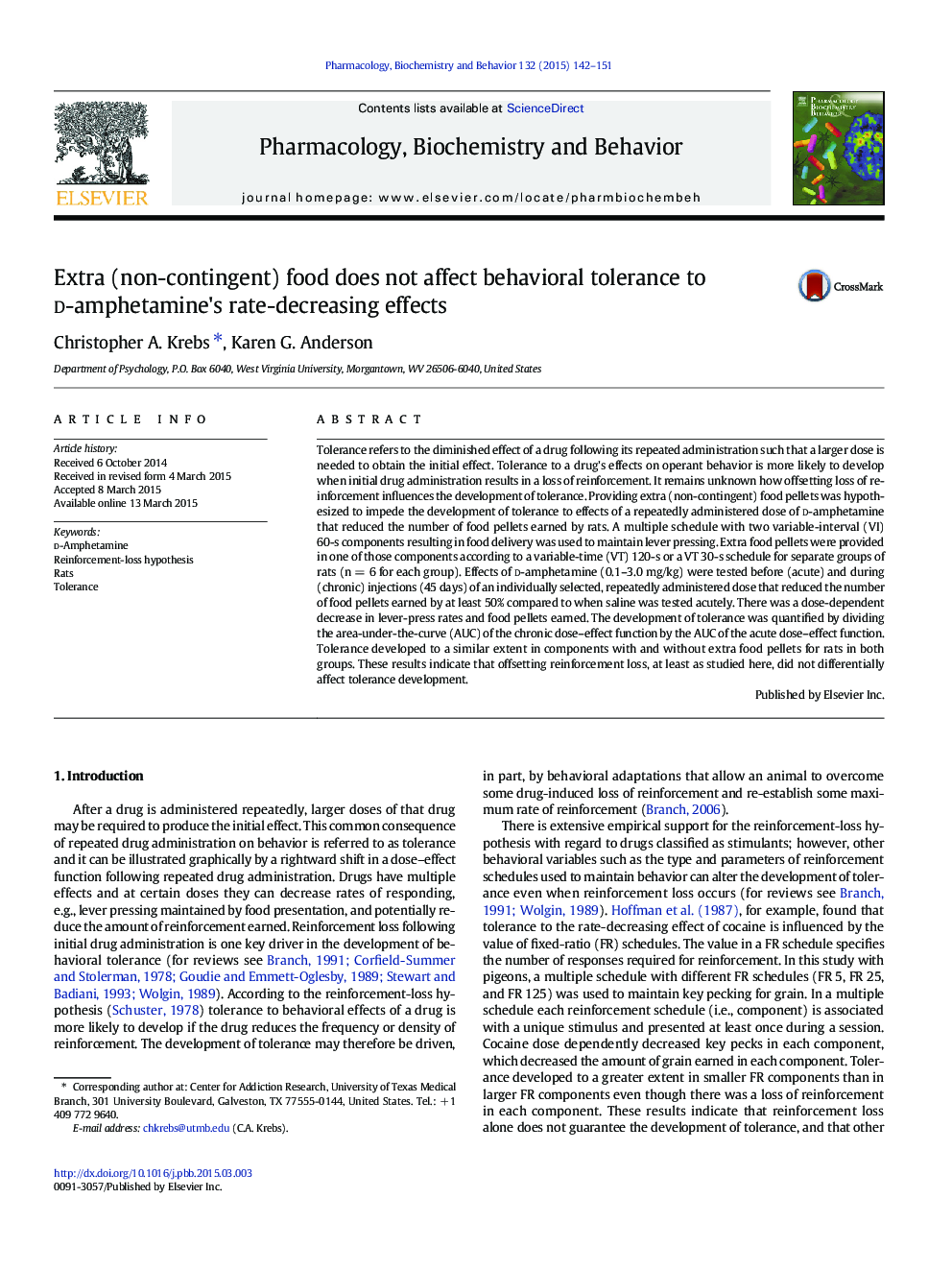| کد مقاله | کد نشریه | سال انتشار | مقاله انگلیسی | نسخه تمام متن |
|---|---|---|---|---|
| 2012814 | 1541852 | 2015 | 10 صفحه PDF | دانلود رایگان |

• Tolerance is affected by the extent to which drug administration produces reinforcement loss.
• Acute and chronic effects of d-amphetamine on lever pressing in rats were assessed.
• There was a dose-dependent decrease in lever presses and food pellets earned.
• Extra (non-contingent) food pellets were provided to offset reinforcement loss.
• Providing extra food pellets did not differentially affect tolerance to d-amphetamine's rate decreasing effects.
Tolerance refers to the diminished effect of a drug following its repeated administration such that a larger dose is needed to obtain the initial effect. Tolerance to a drug's effects on operant behavior is more likely to develop when initial drug administration results in a loss of reinforcement. It remains unknown how offsetting loss of reinforcement influences the development of tolerance. Providing extra (non-contingent) food pellets was hypothesized to impede the development of tolerance to effects of a repeatedly administered dose of d-amphetamine that reduced the number of food pellets earned by rats. A multiple schedule with two variable-interval (VI) 60-s components resulting in food delivery was used to maintain lever pressing. Extra food pellets were provided in one of those components according to a variable-time (VT) 120-s or a VT 30-s schedule for separate groups of rats (n = 6 for each group). Effects of d-amphetamine (0.1–3.0 mg/kg) were tested before (acute) and during (chronic) injections (45 days) of an individually selected, repeatedly administered dose that reduced the number of food pellets earned by at least 50% compared to when saline was tested acutely. There was a dose-dependent decrease in lever-press rates and food pellets earned. The development of tolerance was quantified by dividing the area-under-the-curve (AUC) of the chronic dose–effect function by the AUC of the acute dose–effect function. Tolerance developed to a similar extent in components with and without extra food pellets for rats in both groups. These results indicate that offsetting reinforcement loss, at least as studied here, did not differentially affect tolerance development.
Journal: Pharmacology Biochemistry and Behavior - Volume 132, May 2015, Pages 142–151